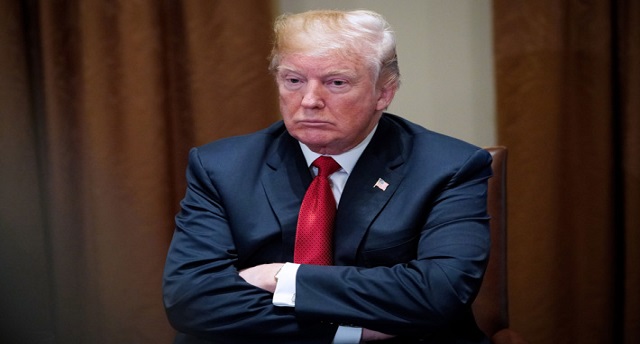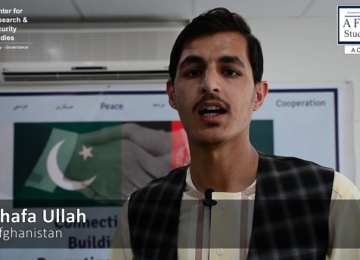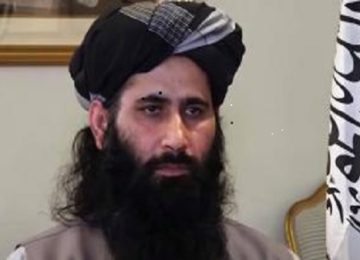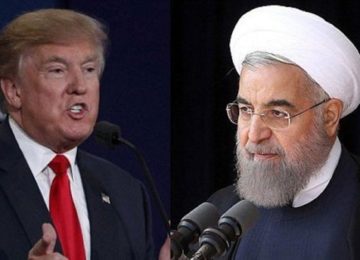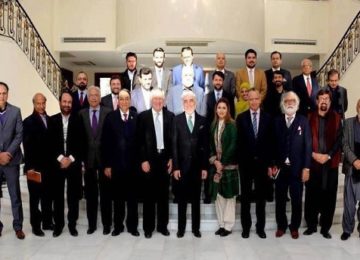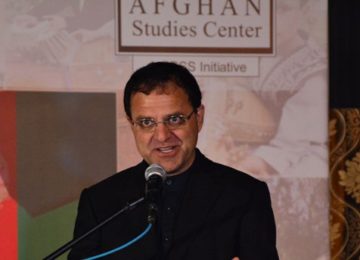Before agreeing in April to support President Donald Trump’s nominee for Secretary of State, Mike Pompeo, Sen. Rand Paul said Trump “told me over and over again in general we’re getting the hell out of [Afghanistan].” Based on my experiences during two combat deployments to Afghanistan in 2005 and 2011, the president’s instincts are spot-on correct.
Last month marked the 40th anniversary of the 1978 coup that violently brought communist rulers into power in Kabul. Two years later the Soviet Union invaded. Ten years later, they withdrew, laying the foundation for the Mujahideen Civil War that led to the rise of the Taliban in 1996 and their war against the Northern Alliance. This war was still raging on 9/11 when the U.S. military entered the scene. The fundamental causes of these various civil wars still remain today. After 40 years of fighting, the Taliban’s fight against Kabul is not going to simply end due to U.S. intervention.
The sooner Trump translates his instincts on ending U.S. military involvement in Afghanistan into policy, the better for America. A withdrawal will improve American national security and strengthen economic prosperity. Extricating U.S. troops from Afghanistan will not be easy, however, because there are many in Washington — senior military leaders among them — who want to defend the status quo at any cost. There is no benefit to the United States in trying to fight yesterday’s failed battles but trying to do it “better.” The strategy has failed, not the tactics.
In response to suggestions the U.S. military should finally leave Afghanistan, Secretary of Defense James Mattis emphatically stated, “We’re there to do a job. We’re not there to stay forever. But the job comes first.” The Washington Post reported an unnamed senior military official claimed Taliban leaders “are realizing that they can’t just wait us out anymore … That’s huge.” My personal observations gained through two combat deployments there, and overwhelming independent evidence, suggest otherwise.
In a report released days ago by the Special Inspector General for Afghan Reconstruction (SIGAR), Mattis said his job was to “strengthen the Afghan security forces enough to convince the insurgents that they cannot win on the battlefield, driving them to choose reconciliation.”
This was the same goal cited by U.S. officials in 2010 as the objective of the 140,000 U.S. and NATO troops then fighting the Taliban. The effort didn’t succeed then, and it won’t succeed now — not only because we have only 16,000 NATO troops, but because the strategy is fatally flawed. As a student of Clausewitz, the secretary of defense should understand that the problems in this war, like all wars, are political rather than military in nature. American soldiers cannot solve this puzzle. And, more importantly, they don’t need to for America’s security. As of the publication of SIGAR’s report, the Taliban have refused to even begin discussions of peace pushed by Afghan President Ashraf Ghani since last February and hoped for by Kabul and Washington alike for almost a decade.
Recent horrific bombings in the Afghan capital and elsewhere in the country have continued a strong and increasing trend of insurgent and terrorist attacks. Last Monday, 25 people were killed—including 9 journalists—in two Kabul bombings. The New York Times reported the attacks were “the latest spasm of a conflict that began more than a decade and a half ago and shows no sign of ebbing.” But that wasn’t the end of the bad news.
The SIGAR report issued last week documented a staggering number of instances in which U.S. military, civilian, and economic objectives had failed — now 17 years from the beginning and still counting. The reason for the failures are not hard to identify: Washington is trying to solve political, economic, and diplomatic problems with military power. So long as America’s foreign policy elites continue pursuing a dead-end strategy, they will deepen this failure and continue to bleed the United States of troops and treasure.
Many in the Washington establishment incorrectly believe leaving Afghanistan in its current state will increase the threat to America and make it “once again” a safe haven for terrorists who might one day want to attack the U.S. homeland. This is an argument based on a flawed understanding of what conditions on the ground in Afghanistan are like and on what military power over there can accomplish. And it also includes a willful blind spot to the actual outcomes of their policy choices over the last decade and a half.
American security can best be maintained by engaging in robust global intelligence, surveillance, and reconnaissance focused on transnational terrorists, strengthening border security, and through improved cooperation between the CIA, FBI, and local law enforcement. Conventional troops spread thin in numerous but isolated spots around the world have not and will not reduce U.S. vulnerability to future terrorist attacks. Nation-building is costly, counterproductive, and undermines to the security of America by draining precious resources essential for rebuilding national power.
It’s long past time Washington recognizes the facts on the ground mean the fight on the ground is Afghanistan’s and will never be resolved regardless of U.S. intentions or taxpayer-funded assistance. No number of American military troops will ever change their political dynamics.
The people on the ground who have to live with the outcome are the only ones who can manufacture a lasting resolution. Until — or unless — they come to a decision on their own, U.S. blood and taxpayer dollars will pour indefinitely into a bottomless pit, without even the possibility of achieving something that benefits Americans.
Trump’s instincts and Paul’s emphatic requests to end the U.S. mission in Afghanistan are both correct. For the sake of American security and economic interests, it is time to turn Afghanistan over to Afghans and focus on rebuilding our military for fights against near-peers who might actually pose an existential threat to America.
This article originally appeared warontherocks.com on May 10, 2018. Original link.
Disclaimer: Views expressed on this blog are not necessarily endorsed or supported by the Center for Research and Security Studies, Islamabad.



